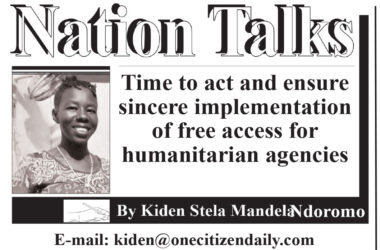By Kiden Stela Mandela
Hospitals must never shut down, not even for a minute. They are visited every day, at all hours, by people suffering from various illnesses that require the immediate attention of professional doctors.
The authorities at Bor State Hospital in Jonglei State did well to reopen the facility and resume full operations after the two-week-long protest earlier this month. The closure of a main referral hospital puts the lives of citizens in extreme danger, and the immediate resumption of services is a good step, affirming the human right to access healthcare.
The Ministry of Health should recognize that restructuring staff, including transferring medics to various Payams in Bor County to extend quality healthcare services to the villages, is a commendable goal. However, such a move must be handled with care.
Tensions arise when transfers are poorly managed. It requires dialogue, understanding, and clear communication between the hospital management, the existing staff, and the new replacements. A professional doctor should, in principle, be ready to serve anywhere, as the core duty remains the same: saving lives. This assignment could be easily accepted with understanding.
The protests and the subsequent closure were likely rooted in concerns over incentives and timely government salaries. Doctors might receive better incentives at the state hospital compared to remote counties where government salaries are notoriously late. In this current harsh economic climate, the delay of any payment or incentive can trigger a crisis. The government must ensure civil servants are paid on time to prevent protests over incentives provided by other organizations.
The closure of the main referral hospital was unnecessary and tragic. Issues can and must be resolved while the hospital remains operational.
During the recent closure, it saw devastating consequences as several mothers were forced to give birth at the main gate and lives were tragically lost due to the denial of essential healthcare services.
Medical directors and staff must exercise extreme caution when dealing with matters that affect sick people. While disagreements are normal, refusing a directive that extends care to the needy, or protesting by closing a vital facility, is unacceptable.
The emergency ward, antenatal care, maternity wards, and the main gate must be open 24 hours a day with doctors on continuous duty. Patients must be assured of follow-up care.
I appeal to the Government of South Sudan to prioritize timely salary payments to its civil servants to avoid protests that put patient lives in jeopardy. In case of any misunderstanding or dispute, hospitals must always remain open.
God protect South Sudan.
Be the Spectator!




